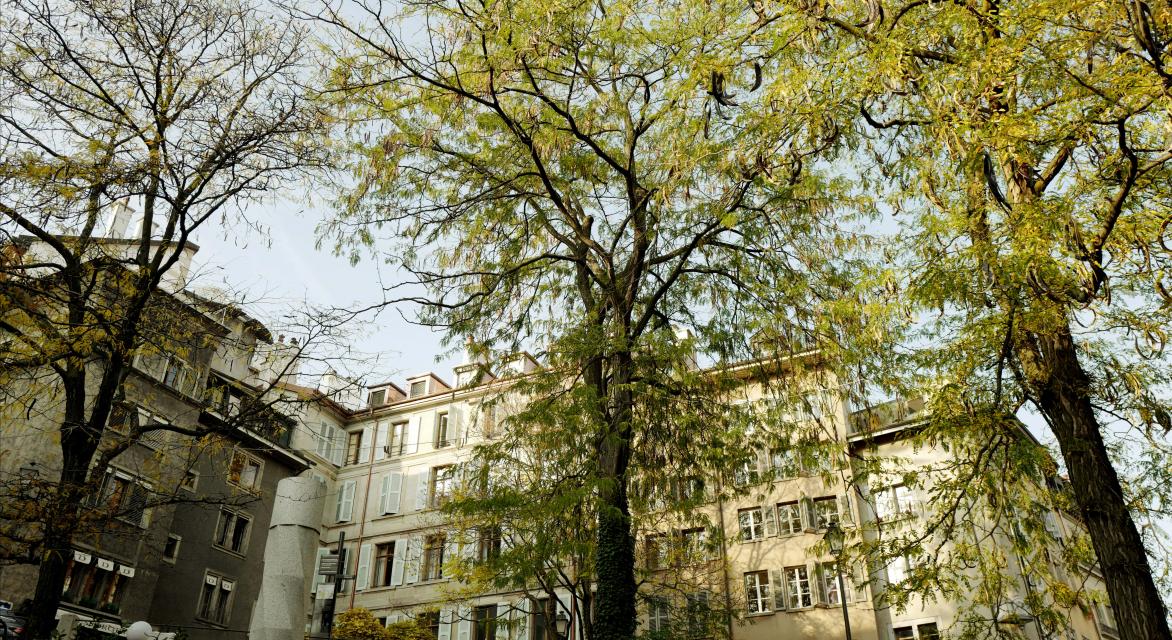With the uncertainties related to the performance of financial markets, Geneva’s real estate market proves once again that it’s a safe haven for investors.
The bond market, although less risky than real estate, fluctuated between nil and negative rates, therefore no longer an attractive investment for return expectant investors.
The stock market on the other hand, after having recorded a sustained growth during the first three quarters, underwent a readjustment at the end of November 2018, that brought the Swiss Performance Index down to -10%. The Dow Jones remained balanced compared to the 1st of January.
With historically low mortgage rates and a stable exchange market after the 2014 crisis, this new millennium looked promising for the durable goods market. After 11 months similar to the previous fiscal year, December strongly confirmed these expectations.
This economic dynamism is apparent in the volume of transactions recorded, that by end of December reached CHF 2.6 billion for the canton of Geneva only (source FAO). With transactions close to CHF 775 million, December alone concentrated nearly 30% of the annual activity, demonstrating the eagerness of investors to place their available funds before year end. The average recorded transaction over that period was of approximately CHF 24’000’000.-, comparable to 2017 figures.
This year, the market structure remained eclectic for assets changing ownership in amounts under CHF 10’000’000.-. Over 50% were private or inheritance sellers that benefited from the situation and used it to reallocate their funds and increase available cash, or to better prepare future successions. In terms of buyers, all stakeholders were represented here. Operating businesses were involved in more than 1/3 of the transactions. And then, equally distributed, came private investors, investment companies, corporate customers and investment funds.
However, only corporate customers and investment funds were involved in investments over CHF 50’000’000.- and they were responsible for most of Geneva’s acquisitions in 2018.
Investment funds with expected returns of 1.5%
at the end 2017 (source CHS PP) performed well on the 2018 residential property market. Real estate remains 20% of their yearly budget allocation. Unless bond market rates increase and with them the interest rates, the amount of cash that investment funds possess could predict a bright near future.
Office and commercial space markets are still undergoing some readjustments, with hundreds of thousands of empty sq m. in second-rate locations. These properties allow foreign investors to seek refuge in our country. They remain a great opportunity for them, providing higher returns, but at the same time increased vacancy risks. With the exception of the Centre of Geneva, the gross margin on this type of transaction is between 4.5 and 5%.
As far as residential properties are concerned, the tension that has affected our rental market, low rates and abundance of liquidity of corporate customers and investment funds have led to some concern regarding acceptable returns during acquisitions.
Returns observed at Pilet & Renaud Transactions SA for 2018 range from a gross 3.25% for an apartment building located in the Centre of town and in excellent general condition, to a gross 4% for an apartment building in the outskirts. In our Canton, transactions don’t exceed 5% for property transfer.
Let’s look at the prospects for the next fiscal year. For the past few years, we have feared the increase of mortgage rates and apart from a few minor jumps in 2016 they haven’t shifted. There’s little to indicate that these rates will rise during the next fiscal year. Analysts are counting on a soft, progressive increase. On the other hand, at the end of 2018 lawmakers decided to review interest rates for the tax assessment of investment properties, thus creating a new tax barrier for this type of investment.
In 2018, Pilet & Renaud Transactions SA sold 12 buildings in real property investment alone, making the Company a key player in the field in Geneva.


